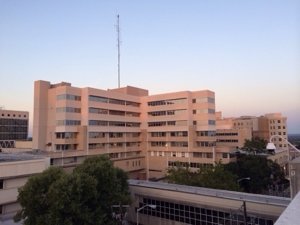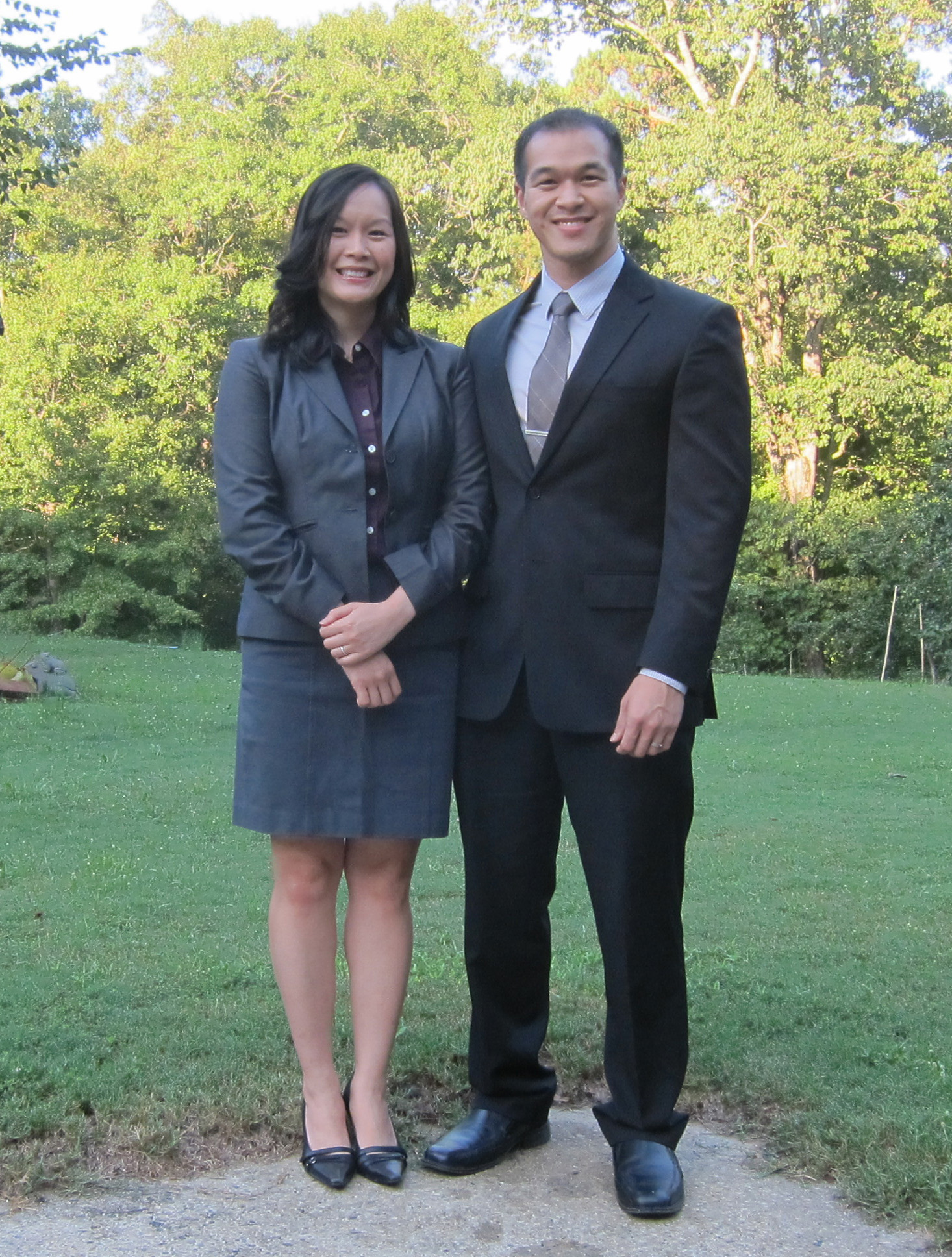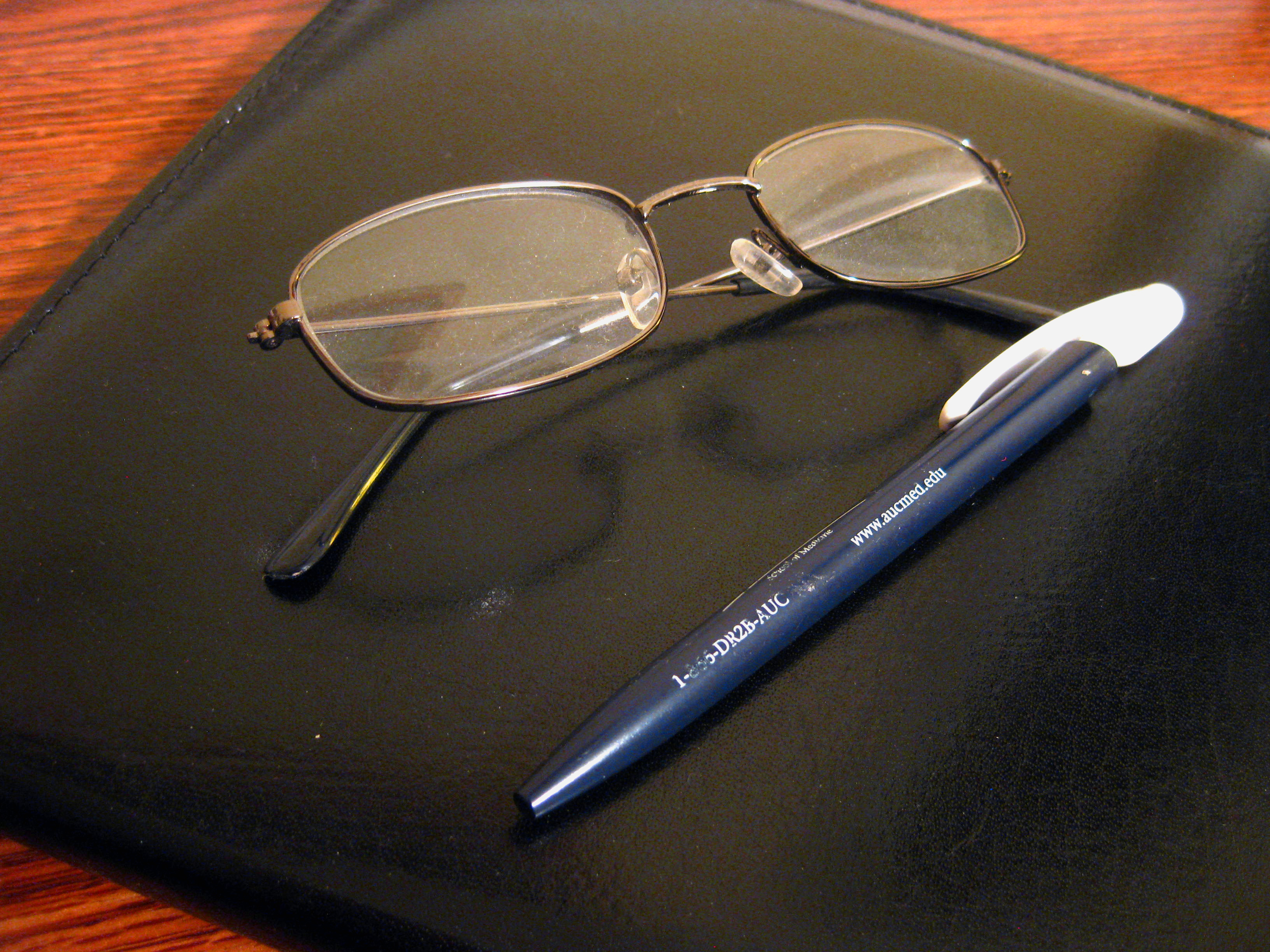Dos and Don’ts for Residency Application and Interview
 It’s that time of the year again… interview season. It didn’t seem that long ago that I was interviewing here and meeting my current colleagues for the first time. Today, I find myself on the other side of the dinner table, interviewing candidates who I will potentially work with next year. I’ve gotten to read many applications, and met many interviewees, and I’ve seen many mistakes and bad ideas. Seeing the interview process from this side of the match gave me a lot of insight to how it works.
It’s that time of the year again… interview season. It didn’t seem that long ago that I was interviewing here and meeting my current colleagues for the first time. Today, I find myself on the other side of the dinner table, interviewing candidates who I will potentially work with next year. I’ve gotten to read many applications, and met many interviewees, and I’ve seen many mistakes and bad ideas. Seeing the interview process from this side of the match gave me a lot of insight to how it works.
- Those “pre-interview” dinner with residents isn’t just a casual get together before the interview… it IS the interview. It definitely counts. And given how much input residents get in putting together the rank list, it probably counts just as much, if not more than the faculty interviews, depending on the program. So while you may have an enjoyable night with the residents, still make sure that you are on your best behavior. If you are bringing your spouse or significant other along to dinner, make sure they are on their best behavior too and don’t let them do all the talking and steal the show. Remember, it’s your interview.
- Be nice to the program coordinator, and don’t give them too much trouble. They put in a lot of effort into corresponding with you, scheduling your interview, and organizing your visit in town. Once you schedule your interview, I would highly recommend you stick with it. Don’t respond last minute to an interview invite, and don’t reschedule an already confirmed interview. It’s a big headache for the coordinator to deal with this. And if the coordinator sees you as a big headache to deal with as an applicant, they will likely imagine you as even more of a headache to deal with as a resident. And so they may give you a poor candidate evaluation. Yes, coordinators do evaluate candidates.
- The residency interview season is a lot like rushing for a fraternity or sorority. Everyone who is invited for an interview should already be academically or credentially qualified to come to the program. What makes the difference between candidates is how well they fit with the team. Would the candidate be someone who would not only get along with the residents but also be someone the residents would enjoy being around on a call night? Would he or she be someone who can be more than just a coworker but also a buddy who would be willing to help their peers out? A lot of the interview is looking for personality compatibility.
- Some applicants think it looks favorably on them to praise or flatter the residents excessively. Please don’t do this. It does not make the residents feel any better than they already do, and makes you look desperate. You can still be nice and courteous without doing all this. Like I said above, the residents are looking for a buddy, a peer who they can work with as equals, and a friend who they can hang out with outside of work, not someone who would put them on a pedestal all the time. When you go to dinner with the residents, just be your normal self. Call them by their first name, and when they say dinner is business casual, don’t come in a full suit. When they ask you what you like to do in your free time, please don’t say that you like to “read medical journals” for fun, because anyone can say that and it’s probably not true. They want to know the real you.
- When you meet with the residents, don’t just talk about yourself all night. Ask a lot of questions about the area, and ask about the program. When you ask good, intelligent questions, they know you have done your research and are enthusiastic and interested in coming here. Most of us residents came to this program because it was our number one choice (at least everyone in my year). We want to recruit people who are also excited to be here.
- During interview dinners, some applicants ask questions about how to get into the program, rather than questions about the program itself. This is a big no-no. Don’t ask for tips on how win over the faculty interviewers’ hearts, don’t ask about second looks, and definite don’t ask the resident you are talking to how they think you will be ranked. As a resident, I would rather you ask questions about our experiences in the program, about our relationships with our peers and faculty, or about the practicalities of living in the area… you know, about the actual program, people, or area itself. To do otherwise would make it seem like you just want to match there to match there, rather than to match there because you truly like the program. It’s like dating. You shouldn’t date someone just so that you can say you have a boyfriend or girlfriend. You should date someone because you truly like them.
- Remember, if you talk too much about yourself, you’ll come off as being self-centered. If you talk (or ask) too much about the person you are talking to, you’ll come off as being nosy. If you talk too much about other people, you’ll come off as being gossipy. Have a balance between all three, and you’ll come off as a good conversationalist.
- It does not look good if you write in your personal statement that you are applying to both family medicine and surgery (or some other specialty). If you are applying to two separate specialties, then write two separate personal statements, one for each specialty, and don’t mention that you are applying to multiple specialties anywhere in your application. Residency programs like to see commitment to that specialty. They don’t want to choose a candidate who isn’t sure what specialty they want to do or who only chose a certain specialty as a “back-up.” Along the same lines, make sure you make it clear to your letter of recommendation writer which specialty you want them to write for. I’ve seen otherwise great applicants who may not have been selected for an interview simply because one of their LORs states the applicant is committed to another specialty. And since most candidates waive the right to see the LOR, they may likely go through the application process without knowing something’s wrong.
- Pictures need to be professional. I’ve seen some photos where it was clear the applicant did not read or adhere to the ERAS photo requirements. Who’s to say what other directions they may not follow if hired for residency. Per ERAS requirements, have both head and shoulders visible… not just a head shot, and certainly not a full body shot either. Your face should be in the middle of the photo. The photo needs to be in color, in JPEG format, 100 KB max, and no larger than 2.5″ x 3.5″. Dress business professional (interview attire), smile naturally, and face forward (not to the side). Take the picture in front of a white or light-colored blank background. It may be obvious that you shouldn’t upload a selfie, but you’d be surprised…
- The hobbies and interests section may seem like a pretty non-important section, and it probably should be. However, a lot of residents do look at this section before we go out to dinner with you, so that we know what topics to talk about and connect with you. Be specific when listing your hobbies and interests. “Being an advocate for health” or “giving back to the community” sounds like admirable endeavors but it also sounds like fluff in my opinion. First, what exactly do you do to give back to the community or advocate for health? Second, as medical professionals, aren’t we all advocates of health?
- On the languages section of the ERAS application, if you put that you speak a foreign language fluently, it better be true. Interviewers have been known to bust out in Spanish or some other language to test the validity of your application.
Links for Residency Interview and Match
- How to Apply for Residency
- How to Improve your MSPE Letter
- Most IMG-Friendly States
- How to Prepare for Residency Application Season
- How Many Residency Programs to Apply to?
- Questions Asked During a Residency Interview
- Dos and Don’ts of Residency Application and Interview
- How to Dress for a Residency Interview
- Following Up After a Residency Interview
- Tips on Ranking Residency Programs
Best of luck everyone!
Benji














Hello Dr. Benji,
You’ve done a wonderful job with this intimate yet informative blog. It’s been a real pleasure to follow you from your beginnings as a medical student to a resident physician. My question is two-fold: based on your read of the landscape, do you think it would be wise for someone to begin medical school in the caribbean (in this particular case, AUA) knowing that they would be applying for residency in 2019 and considering the changes that are to be applied in 2016 (and it’s implications on IMG’s) and secondly, what are the chances of that student transfering to AUC?
Thank you again for your blog and your insights,
R.S.
Hi RS,
Thanks for following my blog. As both US and international medical schools increase enrollment each year, the Match will get tougher for both USMGs and IMGs. Even if US med school spots equal US residency spots supposedly by 2016, it does not mean every USMG will be guaranteed a residency spot. There will still be US grads who do not match year to year due to having poor scores or interviews. I would imagine individual merits will still trump country of schooling for many programs, and an IMG with good scores and a friendly, hard-working personality would still be held in higher regard than a USMG who has barely passing scores and a strange personality (and vice versa!). I think premed students should always consider US med schools first, but if this is unattainable, they could try going the IMG route with the understanding that they would have to outperform their US counterparts to be noticed by residency programs. The residency Match is highly competitive, no matter which specialty you are applying to, including IM and FM.
As for transferring from AUA to AUC, I have not seen this happen.I would contact AUC’s admissions office for more info.
Benji
Hi Benjamin,
I have been reading your blog on and off for almost 2 years now! During rotations, step studying, and residency tips. I just graduated from AUA, and after your ROL tips, I realized that you are a resident at MCCG mercer program! I can’t believe i didn’t realize that earlier, but I also interviewed at your program and ranked it my #1 choice! It’s such an excellent program. I wish I could have met you during my interview. Thank you so much for your insight and helpful advise Throughout the years. Hope to see you this summer!
NA
Hi NA,
Glad that you were able to visit our program and wish you the best on the match!
Benji
Hi,
I am medicine student from Poland. I plan to move to Caribbean Islands. I was doing research trying to find an infromation about doctor job on islands and I found your blog. I think that you are the only person who can help me. I hope that you can answer my questions. I want to know if I can nostrify my diploma? What exams I should pass to start practising medicine on Caribbean Islands? Can I do my internship there or I should do it in Poland and then start a residency on islands? I’m waiting for your answer. I’ll be very grateful.
* You can write back on my email.
Martyna
Hi Martyna,
Thanks for reading. Unfortunately I do not have information about residency positions on different Caribbean island nations or nostrification of Polish diplomas in the Caribbean. That is beyond the scope of the topics I talk about on this blog. My blog is about off-shore Caribbean medical education for future residency in the US. I hope you eventually find the information you are looking for.
Benji
Hello Dr. Benji,
I am a Canadian student who will be attending AUC in the fall. I have a few questions that I hope you can answer. Since I am Canadian how hard do you think it will be for me to get a match at US medical school for residency? I have heard that not being a US citizen makes my chances even harder to get matched. Secondly, have you heard of Canadian students getting matched before at the same frequency as other US students that graduate from AUC? Thanks for your time and insight.
Hi Surinder,
Congratulations on getting into AUC. You are right. It is definitely harder for Canadians to match in the US, no matter which school you go to, and this is true for AUC as well. However it has more to do with the residency programs rather than the med school. There are limited number of residency programs in the US that sponsor visas. Those that do may prefer not to, as it can be a hassle, unless you are a really awesome candidate in which they would be willing to sponsor you. Because of this, you will need to be a much more impressive candidate than your US counterparts. It seems unfair but that is just how it is.
Benji